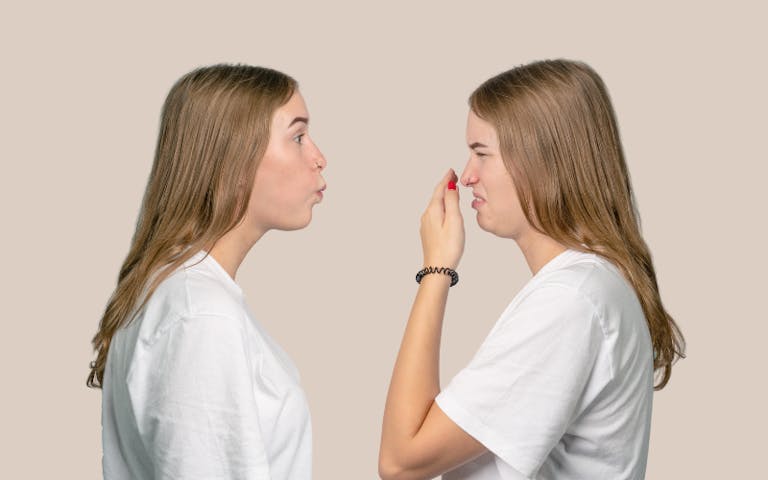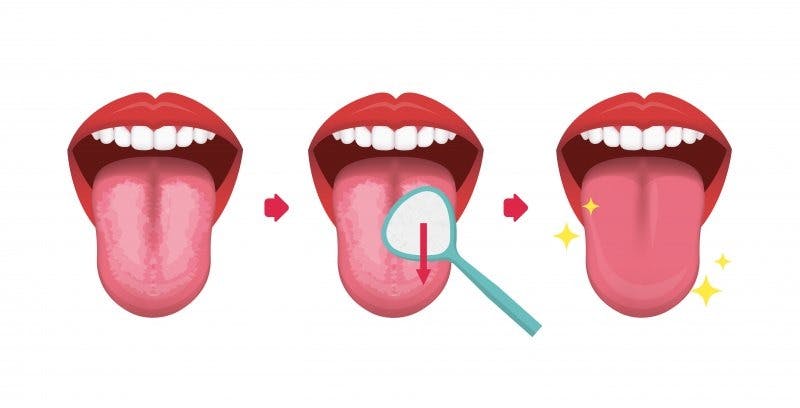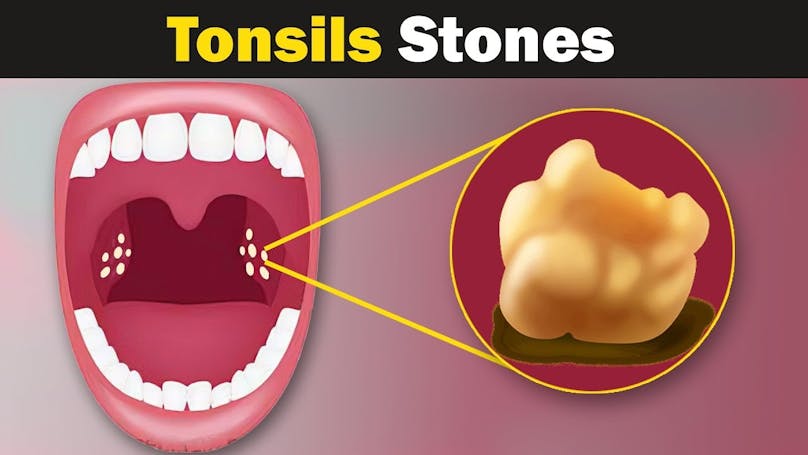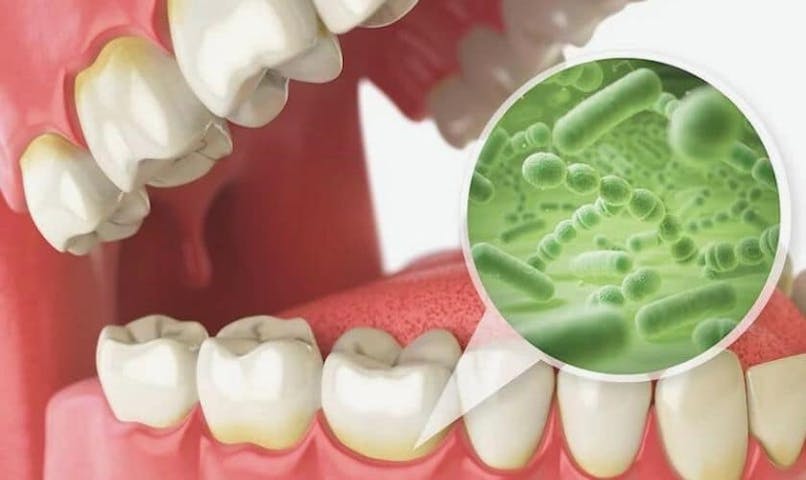7 Ways to Eliminate Bad Breath
#4 Might Surprise You
If you’ve been brushing, flossing, and rinsing daily — yet your breath still isn’t fresh — you’re not alone.
Chronic bad breath is a frustrating issue that often has deeper causes.
Below, we’ll explore 7 practical and proven methods to tackle it naturally.
Pay close attention to method #4 — most people overlook it, yet it could be the real solution.

✅ 1. Clean Your Tongue — Not Just Your Teeth

Most people focus all their oral hygiene efforts on brushing and flossing their teeth, but they often neglect one of the most bacteria-filled surfaces in the mouth: the tongue.
The surface of the tongue, especially toward the back, contains deep grooves and papillae where food particles, dead cells, and millions of bacteria can accumulate.
These bacteria produce volatile sulfur compounds (VSCs), which are known to be the primary cause of chronic bad breath. If left undisturbed, this buildup not only causes unpleasant odor but can also contribute to other oral issues like plaque development and gum inflammation.
To effectively combat this, it’s essential to clean your tongue every day — not just occasionally. Use a tongue scraper or the back of your toothbrush to gently remove the white or yellowish coating from the surface of your tongue, especially in the rear section where bacteria thrive the most. For best results, clean your tongue twice daily, preferably after brushing.
Many people who make this a consistent part of their routine notice a significant improvement in their breath freshness within just a few days. It’s a simple habit — but one that can make a surprisingly big difference.
✅ 2. Stay Hydrated Throughout the Day

One of the most underestimated causes of chronic bad breath is simply not drinking enough water. When your mouth becomes dry — a condition known as xerostomia — it creates an environment where odor-causing bacteria thrive. Saliva is your body’s natural defense: it constantly rinses the mouth, neutralizes acids, and keeps bacterial growth in check.
Unfortunately, many people go for hours without sipping water, especially if they’re busy, talking a lot, or working in air-conditioned environments. Even worse, common beverages like coffee, black tea, energy drinks, and alcohol can act as diuretics, further reducing saliva production. Certain medications such as antihistamines, antidepressants, and diuretics can also have a drying effect.
To keep your breath fresh naturally, make it a habit to drink water regularly — not just when you feel thirsty. Keep a reusable water bottle with you and take small sips throughout the day. In fact, setting a reminder on your phone or using hydration tracking apps can help build this habit. If your mouth feels sticky or you wake up with dry breath in the morning, that's already a sign of dehydration.
✅ 3. Watch Out for Tonsil Stones

Tonsil stones — also known as tonsilloliths — are one of the most surprising and hidden causes of persistent bad breath. These are small, calcified deposits that form in the crevices of your tonsils, often going unnoticed for weeks or even months. Despite their tiny size, they can emit a strong foul odor, similar to sulfur or rotting food.
These stones form when dead cells, mucus, food particles, and bacteria become trapped in the tonsillar crypts (small pockets in your tonsils) and harden over time. Some people are more prone to developing them due to the structure of their tonsils or chronic inflammation from allergies, post-nasal drip, or frequent throat infections.
You might suspect tonsil stones if you experience a metallic or sour taste in your mouth, chronic throat irritation, bad breath that doesn’t improve with brushing, or the sensation that something is stuck in the back of your throat. Sometimes, if you cough hard or press gently near your tonsils, a small white or yellowish chunk may come out — that’s a tonsil stone.
To prevent them, stay hydrated, practice good oral hygiene, and consider gargling with salt water or using a water flosser to flush out debris. In persistent or severe cases, an ENT doctor may recommend professional removal or, in rare situations, a minor procedure to reduce tonsil crypt depth.
Being aware of this often-overlooked issue can be a game changer for those who have tried everything else to fix their bad breath with no success.
✅ 4. Rebalance Your Oral Bacteria

Your mouth is home to over 700 different types of bacteria — some beneficial, others harmful. When this delicate ecosystem becomes unbalanced, bad bacteria can take over and produce sulfur compounds that cause persistent bad breath. This microbial imbalance can be triggered by factors like frequent use of antiseptic mouthwashes, poor diet, stress, or even antibiotic overuse.
Interestingly, researchers are now discovering that the key to long-term fresh breath isn’t just killing bad bacteria — it’s promoting the good ones. Just like your gut needs healthy probiotics, your mouth also thrives when supported by beneficial bacteria that crowd out the bad actors and help maintain a stable oral environment.
Some people have started including oral probiotic supplements in their routines — specially formulated blends that target the mouth and throat rather than the digestive tract. These can come in the form of lozenges, tablets, or chewables that slowly dissolve, allowing the good bacteria to colonize areas like the tongue, gums, and tonsils.
When choosing an oral probiotic, it's important to look for scientifically supported strains known to impact oral health, such as BLIS K12 or M18. Some advanced formulas also include additional plant-based ingredients to support gum health and balance acidity levels — all of which can contribute to naturally fresher breath over time.
In recent reviews, many people have reported noticeable results within a few weeks of consistent use — not only in breath freshness but also in reduced gum bleeding and an overall cleaner mouthfeel.
Curious about how this process works?
You can watch a short, eye-opening video here
that explains the science behind rebalancing oral bacteria — especially for those struggling with bad breath that keeps coming back.
✅ 5. Check for Digestive Triggers

While most people associate bad breath with poor oral hygiene, it’s important to realize that in many cases, the real source lies deeper — in your digestive system. Problems such as acid reflux (GERD), slow digestion, bacterial imbalance in the gut, or even food intolerances (like lactose or gluten sensitivity) can all produce gases that travel upward and are exhaled through the mouth.
For example, acid reflux allows stomach acids and partially digested food to move back up the esophagus. This can leave a sour or foul smell on the breath, even if you’ve just brushed your teeth. Similarly, if food sits undigested in your gut due to enzyme deficiencies or dysbiosis (an imbalance in gut bacteria), the fermentation can release compounds that affect your breath quality.
If you suspect your digestive health might be a factor, consider keeping a food and symptom journal to track any correlations. Eliminating certain trigger foods, taking digestive enzymes, or incorporating probiotics for gut health may support better digestion and indirectly improve breath freshness.
In some cases, improving your gut microbiome can create noticeable changes not just in how you feel, but also in how your breath smells
✅ 6. Adjust Your Diet

Your diet plays a major role in your oral environment. Certain types of foods — particularly those high in protein, sugar, or artificial ingredients — can disrupt the natural bacterial balance in your mouth and provide fuel for odor-producing microbes. Additionally, pungent foods like garlic, onions, and spicy sauces can leave lingering odors that persist even after brushing.
To neutralize odors naturally, focus on a balanced, fiber-rich diet. Incorporate plenty of fresh vegetables such as spinach, lettuce, cucumbers, and carrots. Herbs like parsley, mint, and cilantro are especially helpful — they contain chlorophyll, which has natural deodorizing properties. Also, fibrous foods stimulate saliva production and act as a gentle natural cleanser for your teeth and gums.
Avoid skipping meals too. Fasting for long periods can reduce saliva flow, contributing to dry mouth and allowing bacteria to thrive.
By consistently fueling your body with clean, plant-based nutrition, you’re not only supporting overall health but also creating a less favorable environment for bad breath bacteria.
✅ 7. Be Careful with Certain Medications

Some people struggle with bad breath even when they maintain good oral hygiene and eat well. In these cases, the culprit might be hiding in their medicine cabinet. A wide range of common medications can reduce saliva flow, including those used to treat high blood pressure, depression, anxiety, allergies, and chronic pain.
Saliva is your mouth’s first line of defense — it helps wash away food debris, neutralize acids, and control bacterial overgrowth. When your mouth becomes dry due to medication-induced xerostomia, bacteria multiply faster, and breath odor becomes more pronounced.
If you’ve noticed increased dryness or changes in your breath after starting a new medication, talk to your healthcare provider. They might adjust the dosage, switch you to an alternative, or recommend saliva substitutes or stimulants like sugar-free lozenges or gum.
Staying hydrated, using a humidifier at night, and avoiding alcohol-based mouthwashes can also help manage dry mouth symptoms.
Recognizing this hidden factor can be key to solving a chronic breath problem that seems resistant to other fixes.
✅ Final Thoughts
If you’ve been battling bad breath for a while, and traditional methods like brushing, flossing, or using strong mouthwashes haven’t delivered lasting results, it may be time to look beneath the surface. Many cases of persistent bad breath are linked to deeper causes — such as bacterial imbalances, digestive triggers, or dry mouth — that aren’t solved by surface-level solutions alone.
That’s why addressing the root of the problem, rather than just masking the symptoms, can make all the difference. The tips we’ve shared here — from better hydration to checking for hidden causes like tonsil stones or medications — are a great starting point. But if we had to highlight one method in particular, method #4: Rebalancing your oral bacteria, stands out as a long-term solution that’s showing promising results for many people.
Taking care of your oral microbiome is not just about fresh breath — it also contributes to healthier gums, reduced inflammation, and even better immunity.
Curious about how people are supporting their oral balance naturally — without harsh chemicals or complicated routines?


